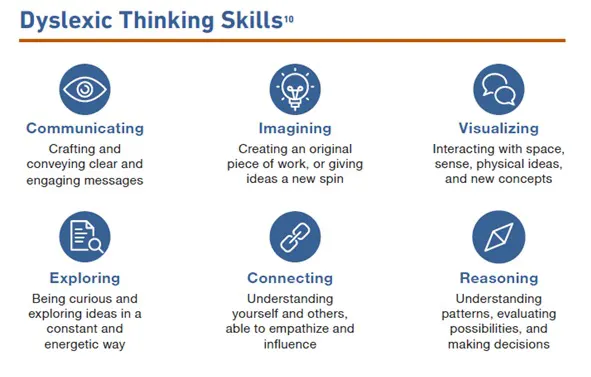The Role of Dyslexia in Solving Talent Shortage

Employers are struggling to find the right fit for their organisation, yet many are overlooking a significant talent pool: those with dyslexia. Dyslexics excel at the soft skills that are so in demand right now. It is estimated that by 2025 humans and machines will split work 50-50 and humans will be needed to perform all of the soft skills machines cannot do. The skills that will be needed more and more in today’s digitized and automated world are the skills dyslexics excel at, such as: managing a team remotely, communications, time management, prioritization, adaptability, analytical thinking, initiative taking, empathy, creativity, and leadership. That’s why recruitment consultants like us encourage leveraging dyslexic talent as a solution to today’s severe talent shortage.
What is Dyslexia?
Dyslexia influences as many as 1 in 5 people. That’s one fifth of the world population. It is a genetic difference in an individual’s ability to learn and process information. It is more than just a difficulty to read. We find that it is important to shine a light on what they can do. Dyslexics have abilities that are different from the “norm”; they excel in creative problem-solving and excellent communication skills. They also have challenges with reading, spelling and memorizing facts.

What’s the problem with that?
Traditional measures of benchmarking talent and abilities puts dyslexics at a disadvantage as it measures them against the very things they find challenging. They have many in-demand soft skills, but too often both employers and recruiters overlook them. They are missing out on a significant pool of talent that could help fill the skills gap. That’s what we want to change.
What should employers be doing?
Employers need to seize this talent or risk being left behind. They need to create an environment where people are recognized for their strengths and not penalized for their difficulties as we so often see. Employers need to create a culture where dyslexic thinkers feel supported to ask for the assistance they need it. This way employers can benefit more from their dyslexic thinking skills as it is these skills that are most valuable in today’s workplace. It's not easy being dyslexic or having dyslexia. But with the right support, dyslexic employees can be incredibly successful. We hope that our report, The Dynamic Dyslexic, provides you with a better understanding of how dyslexic employees can contribute to your organization and what you can do to support them.









